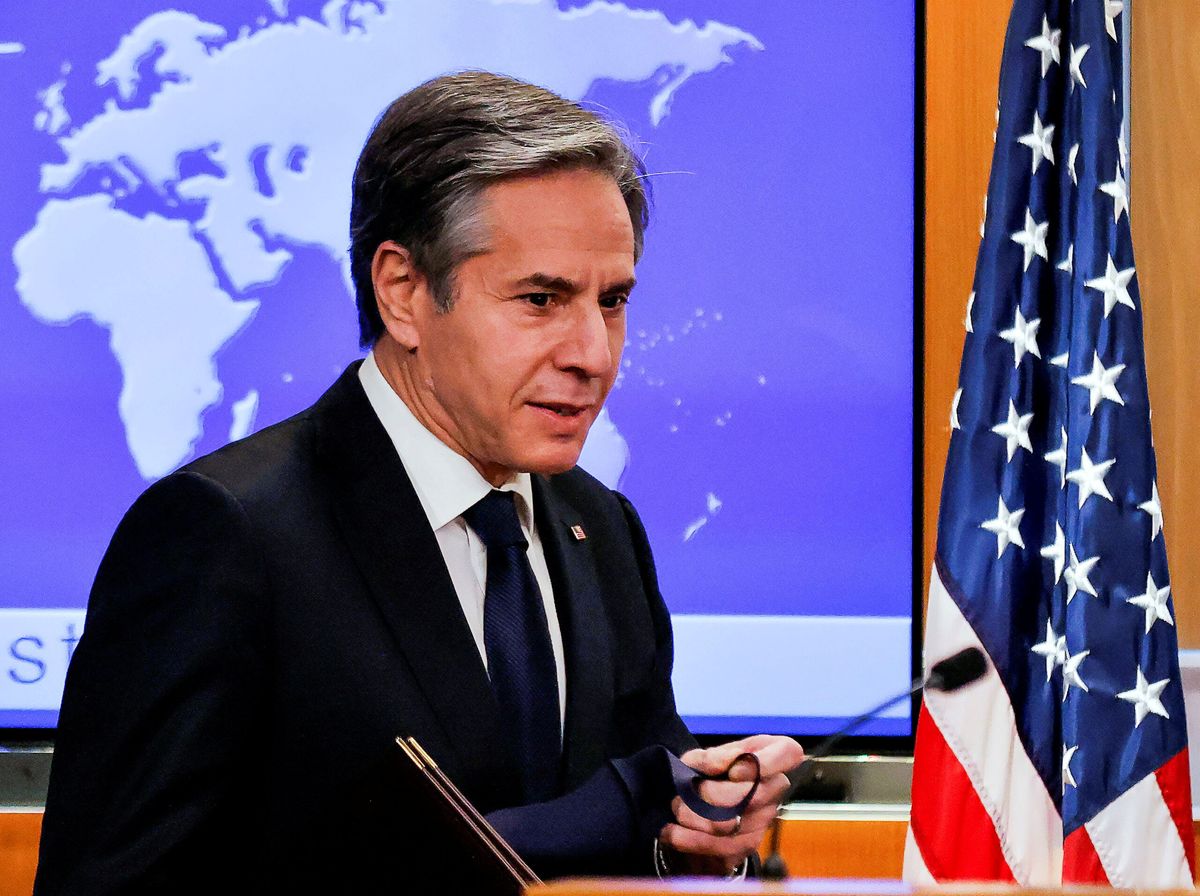Where do the US and Iran stand with the JCPOA agreement?

A few minutes every morning is all you need.
Stay up to date on the world's Headlines and Human Stories. It's fun, it's factual, it's fluff-free.
The Biden administration has promised to return to the deal if the Iranian government complies with the original terms.
The Joint Comprehensive Plan of Action (JCPOA), originally secured by the Obama administration in July 2015, is an agreement between Iran and P5+1 (China, France, Germany, Russia, the United Kingdom and the United States) for Iran to comply with nuclear-related provisions. In return, sanctions from each of the P5+1 countries would be lifted, allowing trade and international aid to continue in the country.
In 2018, however, the Trump administration declared they would withdraw from the agreement and reinstate sanctions on the Iranian government. The other countries involved remained signed onto the agreement, which is now hanging by a thread. However, the Biden administration has promised to return to the deal if the Iranian government complies with the original terms.
Iran’s response
Since the Trump administration’s decision to back out of JCPOA, Iran has pushed the boundaries of the agreement and the patience of the other countries involved. One of the agreement’s regulations caps the enrichment of uranium at 3.67%. Low-enriched uranium, which is classified between 3-5% concentration, is used to produce fuel for nuclear power plants. This agreement ensures the uranium would not be enriched for things like ballistic missiles, which require uranium 90% enriched or more.
On February 22, 2021 Iranian Supreme Leader Ali Hosseini Khamenei told members of the Assembly of Experts, Iran’s government body, that the country intends on boosting uranium enrichment up to 60%.
“We are determined to gain nuclear capabilities proportionate to the country’s needs,” he said. “And for this reason, the limit for Iran’s enrichment won’t be 20 percent.”
Khamenei stressed that Iran was not looking to build nuclear weapons, but accused countries of using that possibility as an excuse to “extort” Iran.
Additionally, the Iranian government passed a law in December requiring the government to restrict United Nations nuclear inspectors who are tasked with monitoring Tehran’s nuclear program. The Iranian government and the International Atomic Energy Agency reached an agreement to continue inspections of Iranian nuclear facilities for the next three months, but without access to the network of surveillance cameras at nuclear sites. This severely limits what the inspectors can see, basically making their inspections useless.
This move is perhaps inspired by the pressure campaign the Trump administration initiated in 2018. Analysts now believe Tehran is seeking to pressure the Biden administration into acting, with the government looking to add leverage of its own over the P5+1 countries.
Israeli actions added to the tensions between the US and Iran, thanks especially to Prime Minister Benjamin Netanyahu’s close relationship with the Trump administration. Netanyahu has vowed to prevent Iran from obtaining nuclear weapons, whether a deal is agreed to or not.
“We do not place our trust in any agreement with an extremist regime like yours,” Netanyahu said in response to Iran’s reneging of the inspections. “With an agreement or without an agreement, we will do whatever is necessary so you do not arm yourselves with nuclear weapons.”
Open to talks
Many Iranian officials have expressed their breaches of the agreement as reversible once the US government removes sanctions and the agreement goes back in place. Iranian Foreign Minister Mohammad Javad Zarif tweeted, “Obliged by law, we halted voluntary implementation of Add’l Protocol … All remedial measures reversible.”
On February 18, Secretary of State Antony Blinken met virtually with the foreign ministers of France, Germany and the UK (E3) to discuss the details of the JCPOA agreement.
In a joint statement released by the group, they agreed that the completion of the JCPOA was a key component in reestablishing diplomatic ties, writing, “fundamental security interest in upholding the nuclear non-proliferation regime and ensuring that Iran can never develop a nuclear weapon.”
Biden has stressed that if Iran came back into compliance with the JCPOA, the US would do the same. However, Iran is asked to not take any additional steps forward in its nuclear program, especially “with respect to the suspension of the Additional Protocol and to any limitations on IAEA verification activities in Iran.”
The E3 leaders and the US added the additional promise to strengthen the JCPOA, promising to address Iran’s border security concerns in lieu of Iran’s missile programs.
For now, the two countries are in a standoff, with the Biden administration demanding a reversion back to the original agreement before they relieve Iran of Trump’s sanctions. With Iranian presidential elections coming up in June, a quick agreement that is beneficial for both countries is key to the stabilization of the country and the safety of the surrounding areas.
Have a tip or story? Get in touch with our reporters at tips@themilsource.com




Comments ()